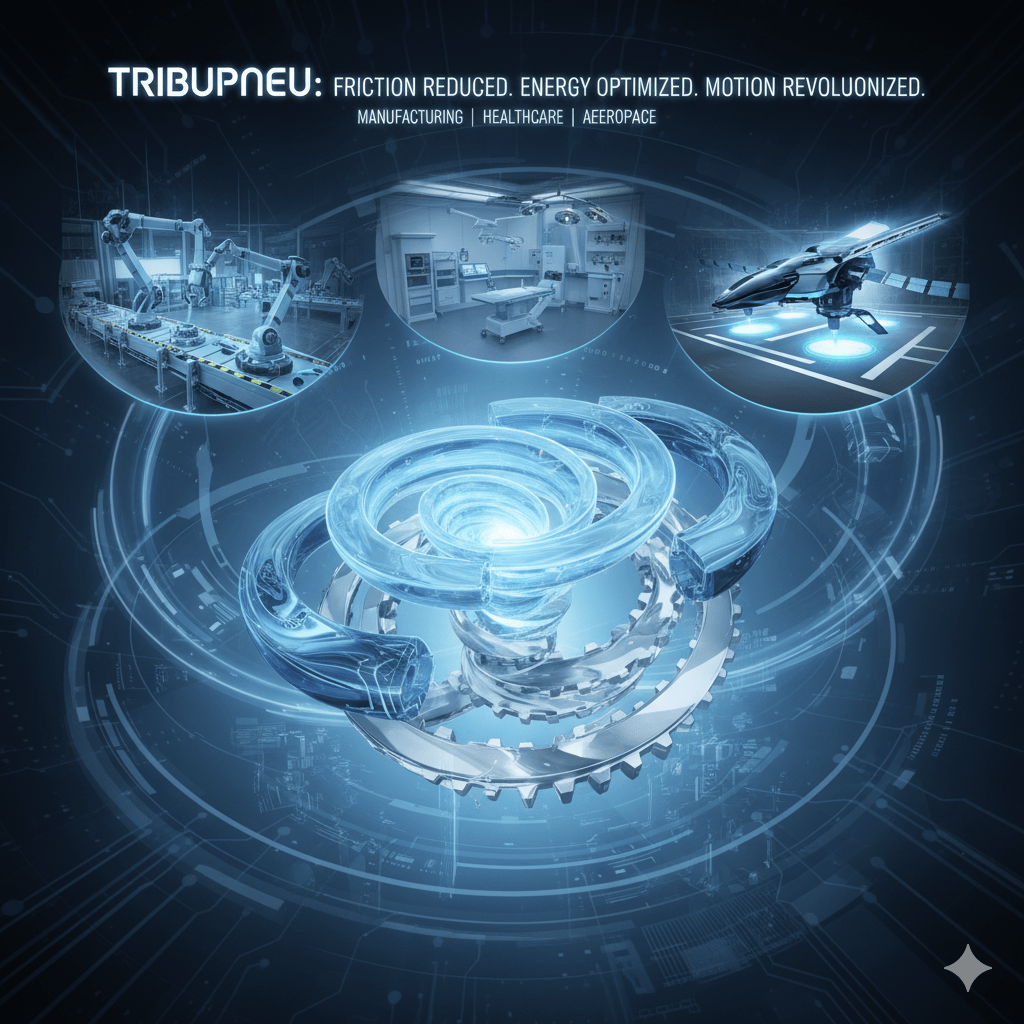Tribupneu—The Quiet Revolution You Didn’t Know Was Happening
You know what? Let’s be honest—most of the “big tech innovations” we keep hearing about are just hype. Fancy words, slick presentations, and a lot of noise. When you really look closer, there’s not much that actually changes how things work. But every once in a while, something quietly appears that actually changes how things move—literally. That’s where Tribupneu comes in.
I still remember when a friend of mine, an engineer working in automation, mentioned this term.
“Ever heard of Tribupneu?” he asked over coffee.
Why It Matters More Than You Think
If you’ve ever been inside an old manufacturing plant, you know that sound—the constant roar of motors, the smell of oil, the vibration under your feet. That’s not just industrial charm; it’s wasted energy and maintenance waiting to happen.
Tribupneu changes that picture completely.
Machines that use this system are quieter, cleaner, and way more energy-efficient. They need less lubrication, produce less heat, and don’t leak oil all over the floor. And for companies, that means less downtime, less maintenance, and smaller electricity bills.
In other words: less mess, more motion.
The Science—Friction Meets Air
Here’s the fun part. Tribology takes care of friction—how surfaces slide against each other without wearing out too fast. Pneumatics takes care of motion—how air pressure moves parts around.
Now, when these two are designed to work hand in hand, something beautiful happens.
The machine doesn’t fight itself anymore.
Think of it like this:
Old machines are like forcing a rusty door open every morning—loud, stiff, and annoying.
A Tribupneu-based system is like that same door after it’s been oiled perfectly—smooth, quiet, and effortless.
The combination reduces wear and tear by up to 40% in some systems (as reported by engineers using early models). It also means less power is needed to perform the same job. Over time, that’s a massive energy saving.
Real-World Examples That Make It click.
Let’s make it real for a second. Imagine:
Automotive Manufacturing
In car production, every second counts. Pneumatic tools are used to lift, tighten, and move heavy parts all day long. When Tribupneu comes into play, those tools run easier, with less noise and less wear. It’s not about speed alone—it’s about control. The machines don’t fight the air pressure anymore; they work with it. That means fewer breakdowns and a smoother production line.
Healthcare
For someone using a prosthetic leg or an arm, every small movement matters. If it’s stiff or jerky, it feels wrong—but when it moves softly, almost like a real limb, it builds confidence. Tribupneu helps create that kind of motion. It allows devices to move quietly and naturally, making recovery or daily use much easier and more human.
Aerospace
Air pressure systems are already a big part of airplanes. But Tribupneu doesn’t stop there—it makes those systems lighter, safer, and longer-lasting. When parts face less friction, they don’t heat up or wear out as fast. For pilots and passengers, that means safer flights and better performance over time.
It helps them move smarter, last longer, and stay calmer under pressure. Whether it’s in a factory, hospital, or aircraft, the
When Machines Start to “Feel”
Now here’s where it gets really interesting. The new wave of Tribupneu systems isn’t just about air and friction—it’s about awareness.
Smart sensors are being added to monitor things like temperature, friction level, and air pressure in real time. The system can then automatically adjust how it operates.
Some prototypes even send alerts for maintenance before a breakdown happens.
Imagine your car telling you, “Hey, my right piston’s getting tired—might need a look soon.” That’s where this tech is heading. It’s motion with intelligence.
Cleaner, Quieter, and Kinder to the Planet
One of the most overlooked benefits of Tribupneu is its environmental impact.
Hydraulic systems leak oil, which ends up contaminating soil and water.
Electric systems, while clean on the outside, often require heavy energy input.
Tribupneu’s air-based system avoids both.
It’s naturally cleaner. No oil spills. No burning smell. Just compressed air doing its job efficiently.
Factories using early-stage versions of this system have reported noticeably better air quality and noise reduction—small changes that actually make the workspace healthier.
Challenges—Because Every Revolution Has a Price
Now, I won’t sugarcoat it. Like any new tech, Tribupneu has its hurdles.
For one, retrofitting old machinery isn’t cheap. You can’t just swap a motor and call it a day—it often needs a complete redesign of certain components.
Then there’s training. Technicians who’ve spent years working with hydraulics need time to understand the sensors and data-driven systems of Tribupneu setups.
And of course, with anything air-based, pressure calibration and sealing have to be perfect. A small leak can throw off performance—though new materials are quickly solving that.
Still, every big leap in history had these growing pains. Electricity did. Automation did. AI did.
Tribupneu’s on that same curve—early struggles, but long-term gain.
The Future Is Quieter—and Smarter
You know what I’ve noticed? The real game-changing stuff doesn’t make a lot of noise. It’s quiet. It just starts working better one day, and you only realize it later when things stop breaking or buzzing.
That’s kind of what Tribupneu is. It’s not about some fancy machine or crazy tech—it’s just about letting things move the way they’re supposed to. No extra push, no fight, just smooth motion.
When machines stop forcing every move, they waste less energy, make less noise, and honestly, just feel more “right.” You don’t need charts or big claims to see it—you can literally hear the difference.
And as all this automation and robotics stuff keeps growing, ideas like Tribupneu will be the quiet heroes behind it. You might not read headlines about it, but you’ll feel it—in the way factories sound calmer, machines last longer, and everything just works smoother.
Final Thoughts
Tribupneu isn’t just about efficiency; it’s about empathy for machines—and for the people who work around them. It’s a quiet revolution that’s teaching industries to move more gracefully.
And maybe, just maybe, that’s the kind of progress we’ve been waiting for all along.
Because sometimes the future doesn’t shout.
Sometimes… it just breathes.

